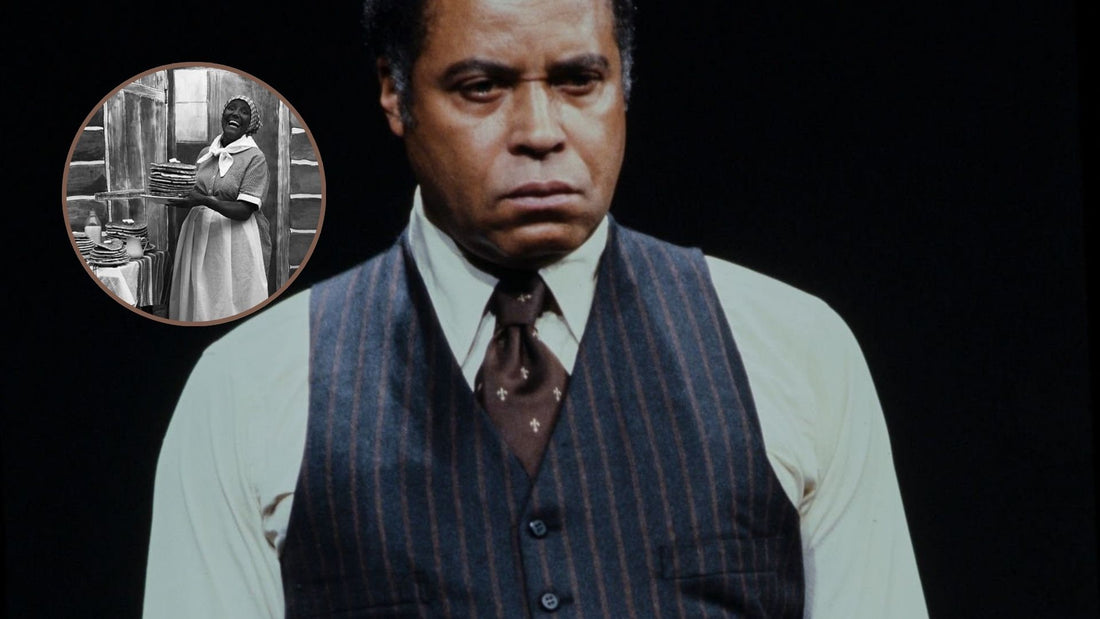Black Women Retract Condolences for James Earl Jones Following Controversial Video Release

James Earl Jones, phenomenal actor in both film and theater—one of the few performers to achieve an EGOT—sadly passed away at the age of 93 on September 9, 2024.
Known for his roles in ‘Coming to America,’ ‘The Sandlot,’ and most notably, the voice of Mufasa from Disney’s ‘The Lion King,’ as well as Darth Vader from the ‘Star Wars’ franchise. Naturally, when the post made its way onto The Shaderoom via their Instagram, the comments were flooded with condolences from men and women alike, with Black women making up the majority.
However, a few voiced that they would, in fact, not send their condolences because Jones was very open about his dislike for Black women. His ex-wives, Cecilia Hart and Julienne Marie, are both White women, whom James openly married throughout his career.
In a now-resurfaced clip, when asked to discuss his take on Black women, he remarks, “The bad habits are not just from the white establishments; the bad habits are from Black women who hate to see a star who’s Black, married to a wife who’s white. That’s a bad habit there. I mean everyone wants to squeeze as much juice out of that racist thing.”
It’s a common misconception that has been holding true for years—that Black women loathe Black men who are successful and choose to marry White women. This is the furthest thing from the truth. The issue, then and now, is that Black men cannot simply live in their truth and be confident in those choices without having to reference back to Black women.
Kenyetta Tisha Barnes on X (formerly known as Twitter) summed up another resurfaced clip from James Earl Jones; she says, “In earlier videos, he shames Black women and called them not feminine, masculine, and militant. One can honor a great pioneer, but we don’t get to pick and choose the legacy. He said that. He called Black women militant and shamed us for not being more like Aunt Jemima.”
Jones says, “Many are overreacting over the Aunt Jemima image—the submissive mother earth type, unselfish, all-giving, especially all-giving to the white male, sexually, in the kitchen, and every other way. And she’s also overreacting about the problem of having to be the breadwinner of the matriarchy.” This take is very telling and should, in fact, not outrage Black women, but White women. We can deduce from this interview that the women a man like Mr. Jones prefers are equivalent to the pavement; they enjoy being rolled on for the sake of appeasing a patriarchal society.

Men who frequently criticize what they claim to dislike while justifying their own actions towards exploring something new—favorable—are known as having a reactionary mindset. This is when the focus on what they dislike serves as a way to validate their own choices. “I hate Black women; here are all the things wrong with them. This is why I’m with a White woman.” It is not about preference; it’s about who is going to tolerate the most disrespect.
A scene on Love and Hip Hop shows Scrappy arguing with his ex-wife Bambi, whom he despises because she chose to end their marriage due to his infidelity. His comment to fellow castmate Kirk regarding his wife, Rasheedah, who is known to have remained married to him despite him having an outside baby on her, despite him asking her for a paternity test when she was pregnant with their recent son, and despite him being a serial cheater, is, “No matter what this man does, she gon’ stick beside him.”
Men measure a woman’s love for them by the amount of disrespect she is willing to tolerate from them. Black women demanding to be treated better, married before children, requiring basic needs to be met, and so forth, trigger Black men to believe these Black women do not love nor like them. Why are your standards for me so high? Why won’t you accept the bare minimum I have for you so that I know you love me?
Men like this are insecure and incapable of leading or being in a healthy, loving, stable, and committed relationship. They use “Black women do not love us” as a reason to seek “love” elsewhere; hence, they are never truly happy with their preference and continue to bash the very women they claim to dislike.
A preference can be all that he wants: pavement, the breadwinner, etc. But the woman he wants will not tolerate his behavior, and this means she does not love him, which hurts his ego. Thus, we have men like Sidney Poitier, Harry Belafonte, and Mr. Jones who have adopted this sentiment.
Dear Black women, continue to stand firm on your boundaries; you are not the problem for Black men; they love us. But they hate that we “don’t love them” because we won’t tolerate their lackluster efforts, lack of commitment, infidelity, and other forms of mistreatment. Keep up the good work, and the next time you see a White woman with a brother, wish them the utmost best and keep it pushing!
by Venus Sanders & Danielle Wright










